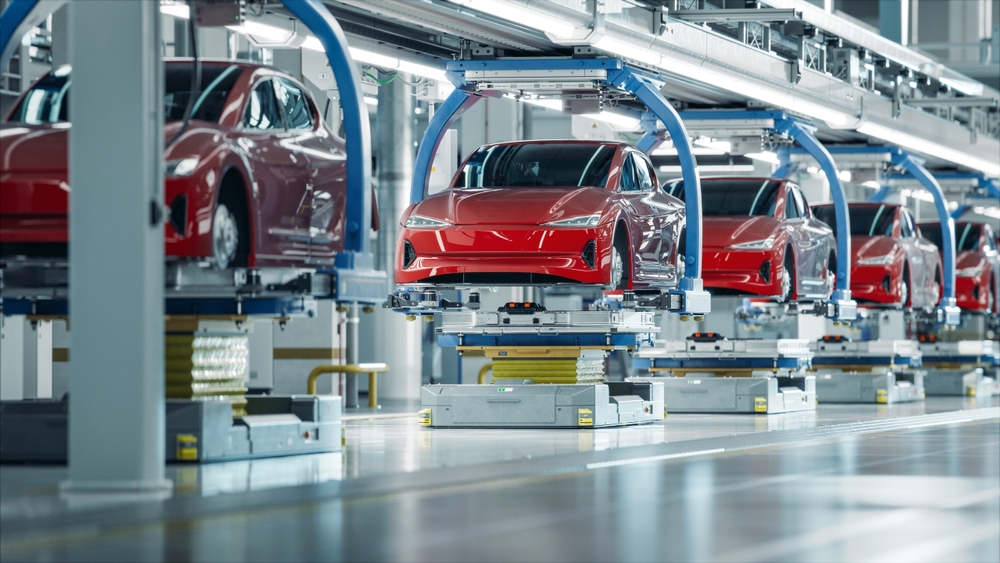Microalgae-Powered Vehicles: The Next Green Revolution
In the ever-evolving landscape of automotive technology, a groundbreaking innovation is emerging that promises to redefine sustainable transportation. Microalgae-powered vehicles are poised to revolutionize the way we think about fuel sources and environmental impact. This cutting-edge technology harnesses the power of microscopic organisms to create a renewable, efficient, and eco-friendly fuel alternative. As the automotive industry grapples with the urgent need for sustainable solutions, microalgae-powered vehicles offer a tantalizing glimpse into a greener future on our roads.

The process of using microalgae for fuel begins with cultivation in specialized bioreactors or open ponds. These controlled environments allow for optimal growth conditions, maximizing the algae’s productivity. Once harvested, the microalgae undergo a series of processing steps to extract their valuable oils, which can then be refined into biodiesel or other fuel types compatible with existing vehicle engines.
Advantages Over Traditional Biofuels
Microalgae-based fuels offer several distinct advantages over traditional biofuels derived from crops like corn or soybeans. First and foremost, microalgae have a significantly higher oil yield per acre compared to conventional biofuel crops. This efficiency translates to reduced land use requirements, addressing one of the primary criticisms of first-generation biofuels.
Additionally, microalgae can be cultivated on non-arable land, eliminating competition with food crops for valuable agricultural space. This characteristic is particularly crucial in addressing global food security concerns while simultaneously advancing sustainable fuel production. Moreover, microalgae can thrive in a variety of water sources, including wastewater, further reducing the strain on freshwater resources.
Environmental Impact and Carbon Sequestration
One of the most compelling aspects of microalgae-powered vehicles is their potential for carbon neutrality or even carbon negativity. As microalgae grow, they absorb substantial amounts of carbon dioxide from the atmosphere, effectively acting as a carbon sink. This process not only helps mitigate greenhouse gas emissions but also presents an opportunity for carbon capture and storage on a large scale.
When used as a fuel source, microalgae-derived biofuels release only the carbon dioxide that was absorbed during the algae’s growth phase, creating a closed carbon cycle. This stands in stark contrast to fossil fuels, which release long-sequestered carbon into the atmosphere, contributing to climate change.
Technological Challenges and Innovations
Despite the promising potential of microalgae-powered vehicles, several technological hurdles must be overcome before widespread adoption becomes feasible. One of the primary challenges lies in the efficient extraction and processing of algal oils. Current methods can be energy-intensive and costly, potentially offsetting the environmental benefits of the fuel itself.
To address these issues, researchers are exploring innovative extraction techniques, such as ultrasonic-assisted extraction and supercritical fluid extraction. These methods aim to increase oil yield while reducing energy consumption and production costs. Additionally, genetic engineering approaches are being investigated to develop algal strains with higher oil content and improved growth rates.
Integration with Existing Vehicle Infrastructure
One of the most appealing aspects of microalgae-based fuels is their potential compatibility with existing vehicle engines and fueling infrastructure. Unlike some alternative fuel technologies that require significant modifications to vehicles or the development of entirely new distribution networks, microalgae-derived biodiesel can often be used in conventional diesel engines with minimal adjustments.
This compatibility could facilitate a smoother transition towards more sustainable transportation options, allowing for gradual adoption without the need for immediate and widespread overhauls of the automotive industry. However, challenges remain in scaling up production to meet potential demand and ensuring consistent fuel quality across different algal strains and production methods.
Future Prospects and Industry Collaboration
As the automotive industry increasingly focuses on sustainability and reducing carbon emissions, microalgae-powered vehicles represent a promising avenue for innovation. Major automakers and energy companies are beginning to invest in research and development initiatives centered around algal biofuels, recognizing their potential to revolutionize the transportation sector.
Collaborations between automotive manufacturers, biotechnology firms, and academic institutions are driving progress in this field. These partnerships aim to overcome technical challenges, optimize production processes, and develop commercially viable microalgae-based fuel solutions. As these efforts continue to gain momentum, we may soon see prototype vehicles powered by algal biofuels hitting the roads for real-world testing and demonstration.
In conclusion, microalgae-powered vehicles offer a tantalizing glimpse into a more sustainable automotive future. By harnessing the power of these microscopic organisms, we have the potential to create a renewable fuel source that not only reduces our dependence on fossil fuels but also actively contributes to carbon sequestration. While challenges remain in scaling up production and optimizing efficiency, the rapid pace of technological advancement in this field suggests that microalgae-powered vehicles may soon become a reality on our roads, ushering in a new era of green transportation.






